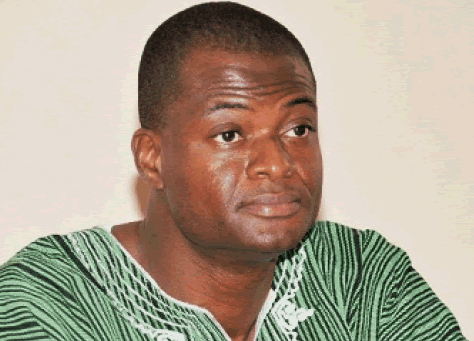Professor Atuguba urges Africans to promote concept of good governance

Professor Raymond A. Atuguba, the Dean of the University of Ghana School of Law (UGSoL), has called on Africans to return to their countries’ concepts and values in governance to create a culturally authentic constitution for their countries.
He said Africans were constantly living by the standards of other foreign countries and their colonial masters, instead of living according to African authentic standards known to them.
He said the development had put the continent in a state of schizophrenia, keeping Africans from fully developing as a continent.
“As Africans, we continuously live by the standards of others, when we have our own standards to live by, always keeping us in a state of schizophrenia. This is clearly seen in the way our constitutions and governments are set up, thereby putting us at a disadvantage while aiding our colonial masters,” he said.
Prof Atuguba made these remarks at a virtual forum on the theme: “Talk and Discuss: What type of Constitution does Ghana need?”, which was organised by We R uS, a non-profit organisation in Ghana.
The forum served as a platform to discuss the growing urge for change on the African continent with Africans calling for a review of their constitutions and governmental institutions to bring into actualization the African citizens’ vision.
The Dean called on African countries to carry out an extensive constitutional review, which seeks to address the current needs of the African continent, saying it is the way forward for the empowerment of the African continent.
“The current situation with our constitutional system as Africans has left us with unenforceable economic and social rights, which is disadvantageous to us because economic and social rights form a part of the predominant issues on the African continent, which need to be addressed under the constitutional system,” Prof Atuguba stated.
“For us to successfully achieve a culturally authentic constitution, we must first identify and seclude aspects of the constitution that are hinged on western liberalism, these happen to occupy the entirety of our constitution disrupting our constitutional governance.
“This process of identification and seclusion must be carried out with utmost care in order not to disrupt the constitutional order,” he said.
He encouraged the continent’s leaders, including Ghana, to revisit the initial indigenous attempts made at the time the constitutions of Ghana and Africa were being drafted to gain more insights into the needs of ordinary citizens and ways to incorporate them into the constitution.
Prof Atuguba reiterated that for citizens of African countries to be receptive to reviewing constitutional systems, the constitution must be traditional.
This, he said, could only be achieved when the values and vision of the African continent were seen in the constitutional setup, using African concepts, including ordinary people in the constitutional process as well as their voices in constitutional debates, and substantive institutions, which are distinctively African, like the chieftaincy and customary law.
“The way we have ordered our constitution cannot provide us with the Africa we want because the current constitution disregards indigenous customary constitutionalism and governance practices. Because we have disregarded these, we have started mimicking extraneous foreign constitutional learning, which has led to schizophrenia,” Prof Atuguba said.
“The only way to address this is to undertake a process of decolonising our constitutional law. If we don’t do this by having a different vision for Africa and our constitution, by establishing African institutions in it, we would always continue to be sub-optimal and cannot deliver the Africa we want”, he added.
We R uS, is a non-profit organisation that works with and empowers Ghanaian traditional villages and communities to plan, organise and undertake self-help and doable community projects to improve their communities and thus stop over-dependence on government for development.
Source: GNA
